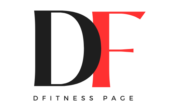How To Bulk

What Is Bulking?
Gaining weight, specifically muscle mass, through a combination of strength training and calorie surplus is known as bulking. The goal of bulking is to develop muscle mass while ingesting more calories than the body expends in order to provide the body with the energy and nutrients it needs to create muscle. This can be done by lifting weights or engaging in other forms of resistance training. Increasing the intake of protein, carbs, and good fats helps to make up the calorie deficit.
Common Mistakes That Are Made
- Overeating: Eating excessive amounts of calories might result in excessive fat gain, making it challenging to remove the extra weight once bulking is complete. By monitoring calorie consumption and making necessary adjustments, this can be prevented.
- Neglecting nutrition can result in poor health and a lack of muscular growth. Eating a diet high in processed foods and simple carbs can cause these problems. For the growth of muscles and general health, a diet rich in protein, good fats, and complex carbs is essential.
- Skipping cardio: Cardio is essential for calorie burning and preserving cardiovascular health, but weight training is crucial for muscle growth. During the bulking period, people frequently forego cardio to prevent losing muscle mass. This is a bad choice because it can result in unhealthful weight gain and poor cardiovascular health.
- Not giving time for rest and recovery: Training itself is vital, but so is recovery. Lack of adequate rest and recovery will prevent the muscles from having time to mend and repair, which will result in poor muscle growth and an increased chance of injury.
- Not keeping track of progress: It's critical to maintain track of your weight, body composition, and measurements. Adjustments to diet and exercise should be taken if improvement is not being made. People who don't keep track of their development may continue using bad methods that produce ineffective outcomes.
The Best Way To Bulk
There are a number of techniques that can be applied to successfully bulk and develop muscle mass:
- Progressive Overload: In a training program, progressive overload refers to a steady increase in weight, reps, or sets. This idea is crucial for muscle growth since it forces the muscles to change and expand.
- Building muscle mass requires resistance training, which can be accomplished by bodyweight workouts, weightlifting, or the use of resistance bands.
- A sufficient protein intake is necessary for both muscle growth and repair. One gram of protein per pound of body weight per day is the amount of protein that is advised.
- Caloric Surplus: To provide the energy required to develop muscle, it is important to consume more calories than the body burns. There shouldn't be too much surplus (around 300-500 calories above maintenance)
- Adequate rest and recovery: For muscles to grow, one must get enough sleep and give oneself enough time to recuperate. obtaining at least 7-8 hours of sleep each night and allowing at least 48 hours between exercises for the same muscle group.
- Monitoring Progress: It's important to keep track of weight, body composition, and measurements so that you can determine whether the current strategy is effective and make changes as necessary.
It’s crucial to remember that the secret to successful bulking is adhering to a well-structured strategy that includes the right nutrition, exercise, and rest. Additionally, it’s important to remember that building muscle takes time, so persistence and patience are essential.
QUESTIONS?
Feel free to ask us about anything. We will answer your questions or concerns as best as we can.
Fitness Products We Recommend

Weight Loss Products
All of the products you need to lose weight are found here for you.

Products to Help Grow Muscle
Wanna grow muscles? We found some products you could use.
